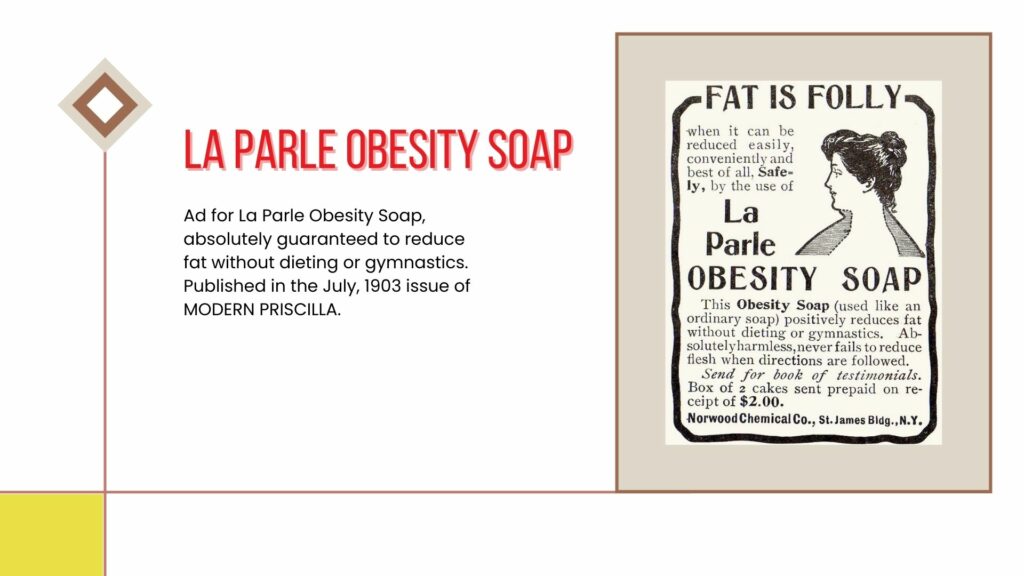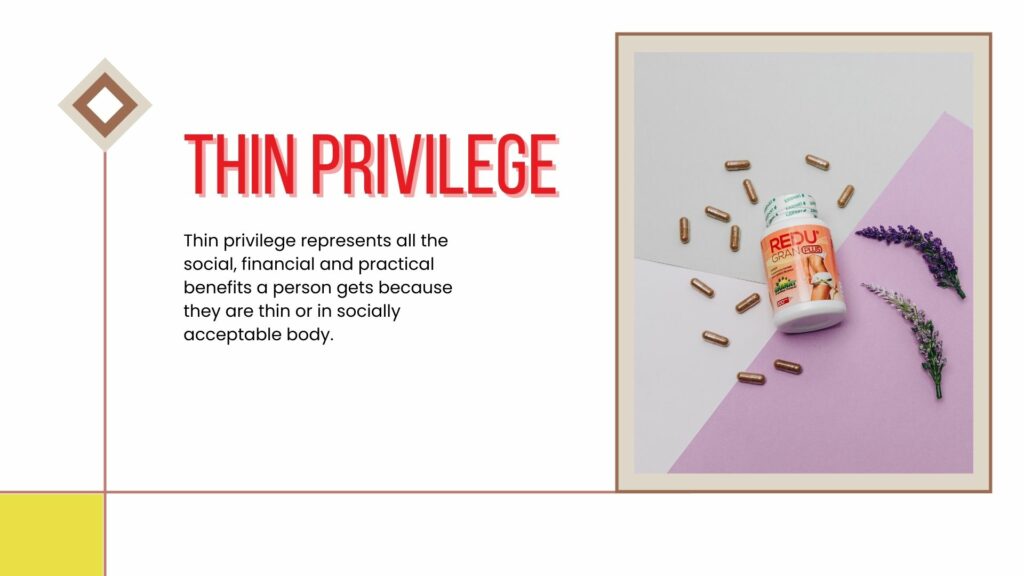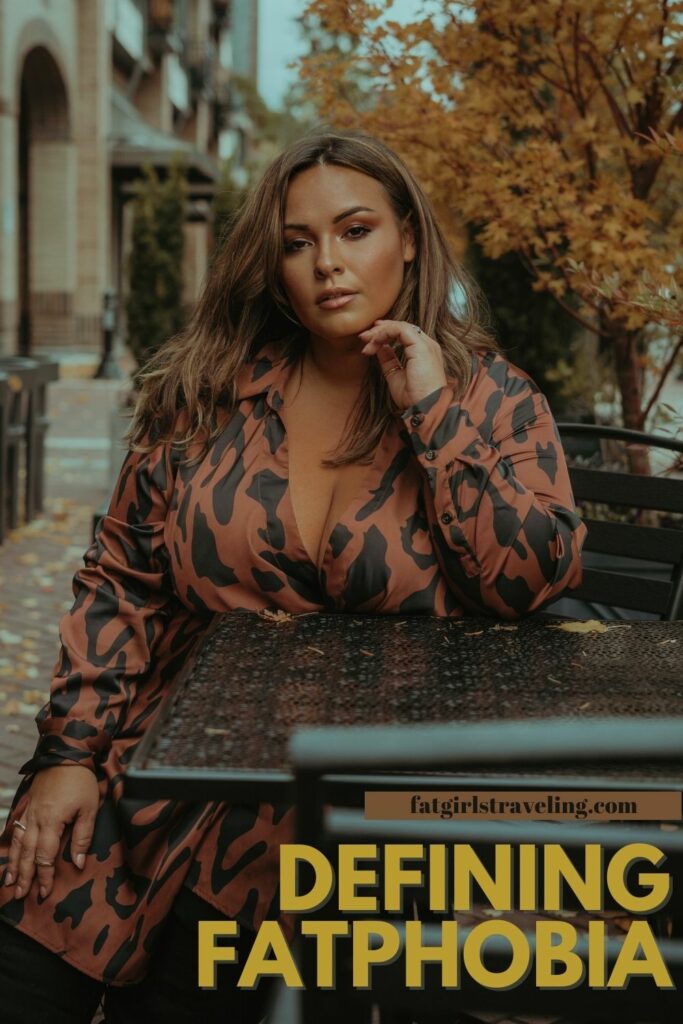Fatphobia is a term that sticks with you. Once I learned what it was I couldn’t help but see it everywhere around me! It’s a popular term in fat politics and has recently become a buzzword.
When I started learning about fat acceptance the term body positive was new. That term has since gone mainstream and is used to market everything from clothing to weight loss products. Something many fear is happening to the term fatphobia. Which is one of the reasons why fat activist Aubrey Gordon doesn’t use it.
As a consultant, defining fatphobia and thin privilege is essential to any discussion about diversity and inclusion. Here’s a look at some of the slides I recently shared with a client.
Fatphobia

There are a few definitions of fatphobia, however, the point I wanted to stress was the presumed moral failing. Fatphobia survives on the fallacy that everyone can control their weight through diet and exercise. This has scientifically and medically been proven to be untrue. Still, social stigmas persist.
Exposing Fatphobia

This La Parle Obesity Soap ad from 1903 demonstrates how long the weight loss industry has been demonizing fat bodies. Along with creating phony products to cure a fake affliction.
While this viral video from Samyra Cambrielle makes it clear that public opinions of fat bodies have not changed in the last 120 years!
Thin Privilege

We’ve been learning a lot about privilege in the last few years. The truth is, we all benefit from some type of privilege. As a fat Black woman, I don’t have much privilege, but I have some! As a lighter-skinned Black person, my proximity to whiteness gives me access to things darker-skinned people don’t have access to. Purely based on racism and colorism.
At a size 20, I can generally find things that fit my fat body whether I’m shopping in-store or online. Due to my proximity to thinness, some retailers make clothing, shoes, swimwear, and accessories to fit me. People in sizes above 24 have less access to clothing and those in sizes 28 and above have nearly no options. How are these people supposed to leave the house if the world doesn’t make clothes that fit them?
Thin privilege is ignoring that access to clothing above a size 24 is an issue. Fatphobia is blaming fat people and our bodies for discriminatory decisions some industries continue to make. Despite the fact that over 60% of Americans, Canadians, Brits, and Australians are considered fat or overweight.





